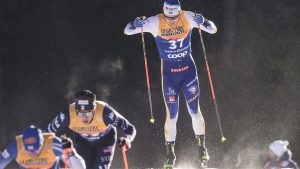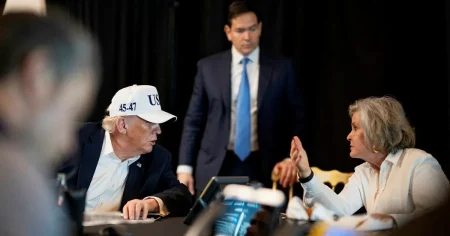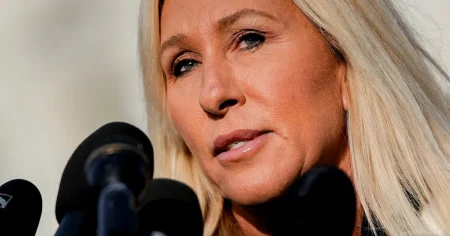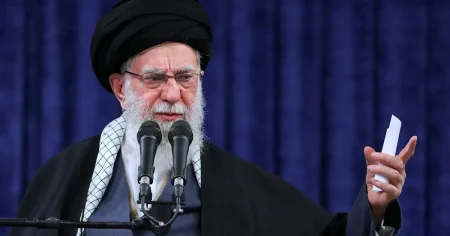The looming US budget crisis has been dubbed a ”Nightmare Before Christmas” by Politico, foreshadowing a potential political horror show in the coming months. The familiar specter of a government shutdown hangs heavy over Capitol Hill, threatening to disrupt vital services and impact millions of Americans. This recurring drama is not a new phenomenon, but the current situation is exacerbated by the return of Donald Trump to the political arena and his willingness to escalate conflicts with even his own party members.
Trump’s demand to raise the debt ceiling to accommodate his promised tax cuts and mass deportations, coupled with his insistence that new economic frameworks be in place before the January 20th transition of power, has thrown a wrench into the ongoing budget negotiations. His motivation is partly symbolic, aiming to avoid being the president who initiates an increase in government spending, a move often viewed negatively by conservatives. However, this strategy has jeopardized the routine funding of government operations and threatens a shutdown.
A bipartisan agreement brokered by House Speaker Mike Johnson, designed to avert a pre-Christmas shutdown, was effectively torpedoed by Trump and his incoming Vice President, J.D. Vance. Their joint statement urging Republicans to be ”smart and tough,” supported by tech billionaire Elon Musk’s calls to ”kill the deal,” forced Johnson back to the negotiating table in a desperate attempt to salvage a last-minute agreement. This public display of dissent within the Republican party highlights the influence Trump still wields and the challenges his presence creates for traditional political processes.
The potential consequences of a shutdown are severe, impacting millions of federal employees facing missed paychecks, as well as countless Americans indirectly affected through businesses reliant on government contracts. Essential services, including support for veterans, pensioners, and disaster relief efforts, are all at risk. Trump’s actions, while potentially disruptive and damaging, can be interpreted as consistent with his promise to shake up Washington, even if it means undermining the authority of his own party members and jeopardizing critical government functions.
While Democrats criticize the Republican political maneuvering for harming working Americans, Trump’s actions also expose a deeper divide within the GOP. Speaker Johnson’s future remains uncertain, and the party is fractured on the issue of government spending. Concurrent with the budget chaos, Trump’s cabinet nominees face tough confirmation battles in the Senate, with some senators facing intense pressure from the MAGA movement. This pressure highlights the erosion of traditional political norms and raises concerns about the integrity of the legislative process.
The unfolding budget crisis is more than just a political game; it’s a high-stakes showdown with potentially devastating consequences. Trump’s demand to raise the debt ceiling, ironically, has lowered the ceiling for acceptable political behavior within his own party. His actions threaten the integrity of congressional members and challenge fundamental principles of power-sharing. The ”Nightmare Before Christmas” may be just the beginning of a protracted period of political turmoil in Washington.














